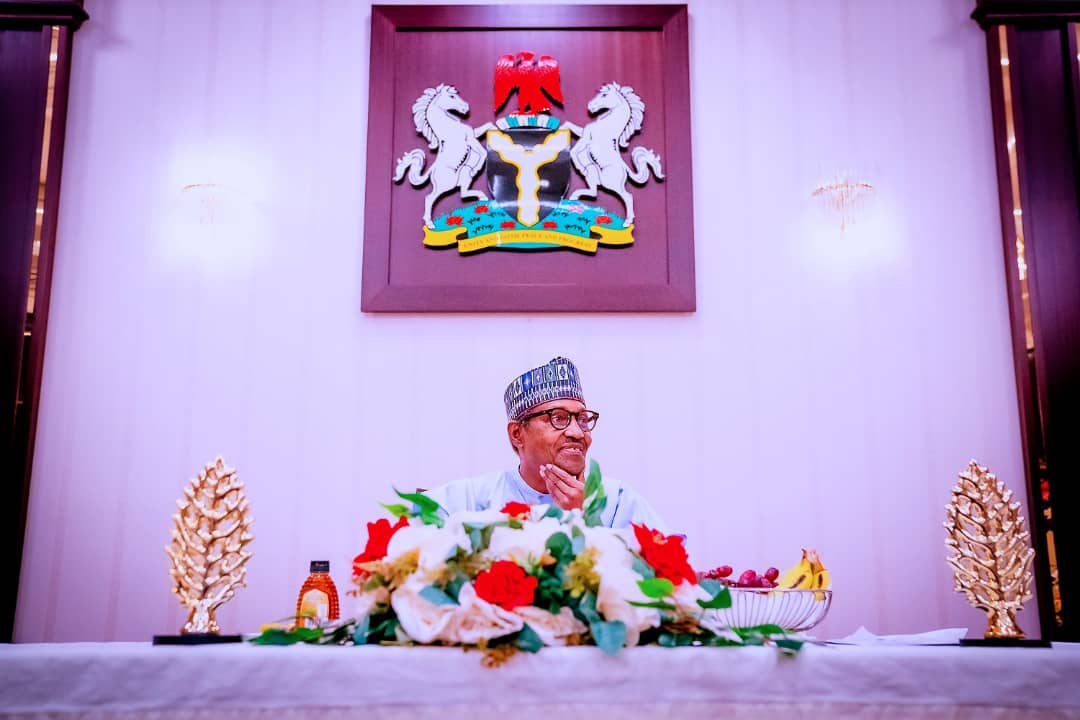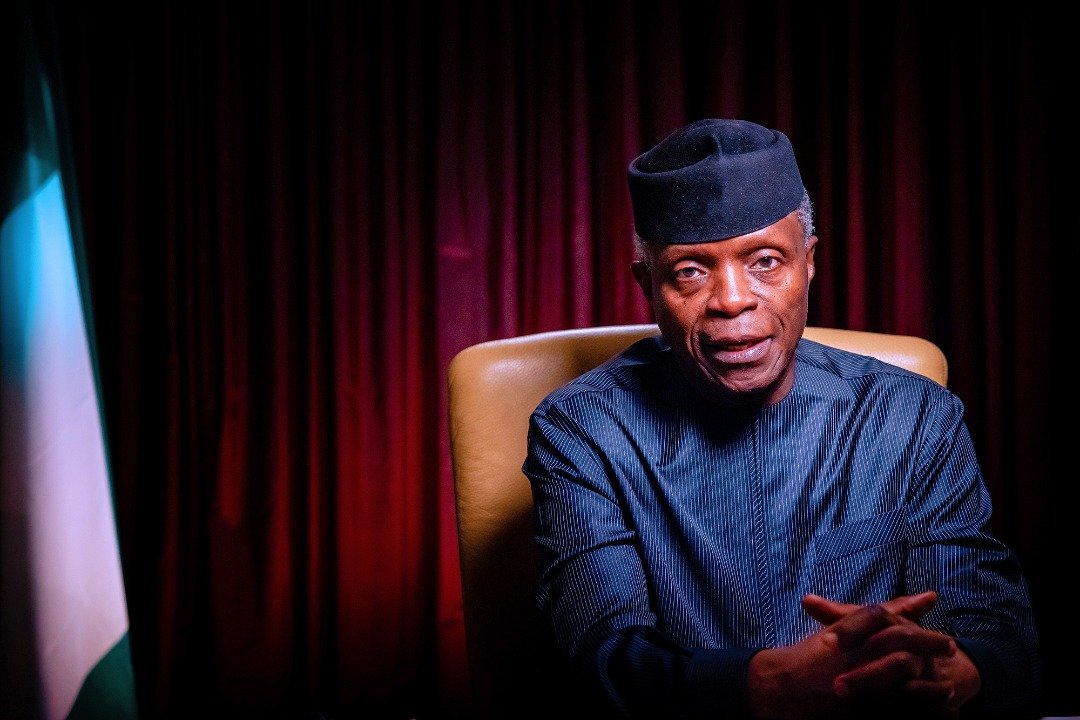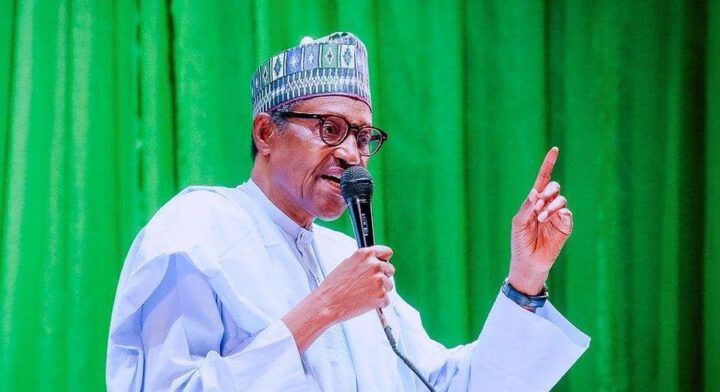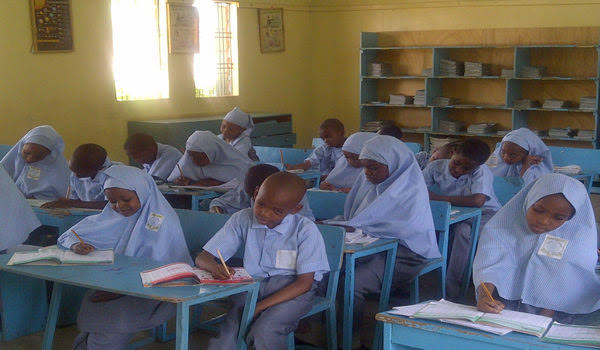When I first registered on social media, my combined emotions of consternation, and anger, at the news of the recent auction of a presidential pardon for convicts, which beneficiaries are Joshua Dariye and Jolly Nyame, former governors of Plateau and Taraba states respectively, one of the responses I got, which got me thinking and pushing me towards despondency, was from a friend who retorted; “Bayo, who told you Nigeria wants to eradicate corruption? I need your answer”.
As I pondered what could be the answer, I began by asking myself again: “Do we really want to end or, at least, reduce corruption to such a minimal level that is obtainable in saner climes?” I doubt it. In 2000 and 2004 when the Independent Corrupt Practices and Other Related Offences Commission (ICPC) and the Economic and Financial Crimes Commission (EFCC) were established respectively through acts of parliament, the latter’s pioneer chairman, Nuhu Ribadu, got cracking and hopes that acts of corruption by political office holders would be made less attractive was rekindled among Nigerians. But as time went on, the new “messianic commission” started running into ditches that tended to swallow its legitimacy in the eyes of the public. The then-president, Olusegun Obasanjo, was believed or perceived to be using the commission to witch-hunt imagined political enemies. According to the beliefs, it did not matter whether you belonged to the same political party as him or not; once you differ with Baba on a political course he believed in and wanted to pursue, you should be prepared to be EFCC’s guest, or receive them as visitors to the embarrassment of your family and friends.
Beyond the problem of political interference, (which is not unexpected for such anti-graft institutions in a third world country like Nigeria), the issue of prosecutorial tardiness was another threat of a dent to the image of the anti-graft agencies, as far as seriousness was concerned. These, coupled with the commission’s penchant for subjecting suspects to media trial, have denied them a clear victory in some cases in which suspects appeared nailed already. So for years, there was no prominent individual suspect that was convicted, despite spending billions of taxpayers’ money on hiring the services of private lawyers prosecutors and counsels. But recently, there appears to be an improvement in the prosecutorial efficiency of the commission due, perhaps, to a combination of the much-touted President Muhammadu Buhari’s antecedent of having zero tolerance for acts of indiscipline during his days as a military head of state.
To pump more fuel into the people’s perception of the person of General Muhammadu Buhari (retired), during the 2015 electioneering, his campaign was anchored, majorly, around fighting corruption in addition to tackling the challenge of insecurity. Upon assumption of office, the Buhari administration inherited a number of ongoing high-profile cases of corruption involving highly placed politically exposed persons. Most of them are ex-governors. They were alleged to have mistaken the state coffers for the breast pockets of their “Baba ń Riga”. They could not distinguish between public funds and their personal money. Here, we are talking of dozens of billions of naira.
Advertisement
The EFCC in each of these cases went about it with its usual “Gra-Gra” – lack of due diligence and dearth of professionalism. As a result, the commission managed to snatch defeat from the jaws of victory in most of the cases in which you expect them to be able to convince the judge about the culpability of the accused, on account of hard evidence at their disposal, and therefore secure conviction. But be that as it may, they were able to extract convictions in two of the cases, involving a former governor of Plateau state, Joshua Dariye and another, an ex-governor of Taraba state, Jolly Nyame. Dariye was accused of looting ₦2 billion from the state treasury during his time as Plateau state governor, between 1999 and 2007 and was jailed for 10 years in 2018. As a governor of Taraba state from 1999 to 2007, Nyame was sentenced to a 12-year jail term at the Kuje prison for misappropriation of funds running into ₦1.64 billion, while he was in office. The two cases were much celebrated because the convicts are members of the ruling All Progressives Congress (APC) as it punctured the insinuations that, once anyone undergoing trial for corruption defects to the party, all his or her sins shall be automatically forgiven. Even though they are not part of the founding fathers of the party, the mere fact that they got convicted as full members of the party was an eloquent testimony to the toga of zero-tolerance for corruption worn by the Buhari administration. So, Nigerians thought.
President Muhammadu Buhari’s administration rocked the world of both his critics and admirers when, on Thursday, April 14, 2022, he announced that some convicts have been granted a pardon by the National Council of State and Dariye and Nyame were on the list. The reason is not far-fetched. This is a president who, as an aspirant, claimed, he had a “zero-tolerance for corruption” as a major selling point. People believed him because of the austere life he is believed to be living during and after his service years. He is also one of the very few who had ruled this country, without having oil blocks, foreign accounts, or a house in Abuja, the federal capital territory, which is a common denominator among ex-military and civilian rulers in Nigeria.
If the ultra-APC supporters would argue, they would tell you that, Buhari was not the first to pardon former public office holders convicted by the EFCC. After all, Goodluck Jonathan in March 2013, pardoned his boss and former Bayelsa state governor, late Dipriye Alamieyeseigha and a former head of the Bank of the North, Shettima Bulama.
Advertisement
The truth of the matter is that when Jonathan did, we all condemned him and his action. Prominent members of the APC, like the current minister of state for labour and employment, Festus Keyamo SAN; the current governor of Kaduna state, Nasir El-Rufai among others, condemned the former president. Yours sincerely was not left out among those who condemned the act. While Jonathan could be excused for he never prided himself in being an anti-corruption crusader, Buhari who many of us grew up to identify as an epitome of integrity has come off as a huge disappointment, with this unforced error.
If I may ask; what is the president trying to achieve by assaulting our collective sensibilities in this manner? Is he trying to tell us that the best way to eliminate corruption is to democratise presidential pardons, targeting, particularly, those who have betrayed public trust? Does the president think of the impact the so-called pardon would have on the morale of the operatives of the EFCC and the ICPC, especially, their investigators and prosecutors? Does he think he is sending the right signal to the youths of this country who have been searching for heroes, after whom to model their lives? (Dis)Honourable Farouk Lawan came as a “purported hero”, when he adopted the toga of Mr Integrity in the house of representatives and was saddled with the responsibility of proving the fuel-subsidy scandal, but failed to get to the finishing line. He was caught on camera as he turned his cap into a sort of piggy bank. The “Super Cop”, DCP Abba Kyari, many hailed as the next hero, due to his crime-busting stories that rented the social media, is currently battling to save his life and career from under the weight of allegations of corruption and drug trafficking. So, is Buhari suggesting to the upcoming generations that if you find yourself in such a position of trust as that of a state governor and you must steal; all you need to do is make sure you steal enough and expect a presidential pardon? There are many questions, begging for answers.
It is not unexpected that officials of Nigeria’s anti-graft agencies, EFCC and ICPC, reportedly say their morale and commitment to work have been waned by the controversial presidential pardon of Jolly Nyame, former governor of Taraba state, and Joshua Dariye, former governor of Plateau state, during an interview with Premium Times
A furious Governor Nyesom Wike of Rivers state, in his rhetoric, said President Buhari should disband the ICPC, and EFCC, after he (Wike), in his view “has thoroughly embarrassed” the anti-corruption agencies, by granting pardons to corrupt convicts. It is very difficult, if not impossible, not to agree with the maverick governor of the oil-rich state. Truly speaking, if the pardoned convicts run into any of the agencies’ operatives at a public gathering, how do you think the latter would feel? Your guess is as good as mine. The former, of course, has the last laugh. And he who laughs last, they say, laughs best. “Ntooooor”.
Advertisement
Apart from eroding the little confidence Nigerians have in the president’s fight against corruption, it amounts to sheer waste of scarce public funds spent on investigating and prosecuting the convicts. Tell me, how would that not extinguish the faith that the rest of the world has in the purported government’s vow to tackle corruption, to make the country safe for investment?
Quite many legal practitioners, among whom is Femi Falana SAN, have come out to condemn the action in the strongest of terms, and rightly so. He sarcastically charged the president to “pardon all the petty thieves and criminals serving jail terms in various prisons” across the land so that the bazaar could go round. Another prominent senior advocate of Nigeria, Mike Ozekhome, also faulted the fact that it is the president who is pardoning when Dariye’s and Nyame’s offences were committed against their respective states of Plateau and Taraba, in which case he expects the pardon to have been granted by the governors of the respective states and not the president.
It would not be too harsh on him if one says: “President Buhari is trying to manufacture artificial saints, through presidential pardon”. Whitewashing the convicts through this kind of selective pardon by the president does not change the fact that, they (the convict) at a certain time stolen from their respective states. It is like a hypothetical case of a not-so-brilliant pupil who was called upon by the Mathematics teacher to solve a quadratic equation written on the chalkboard in a Mathematics class. The ignorant but confident fellow stepped forward, collected a piece of chalk and the duster from the class teacher, and wiped the quadratic equation off the board. When the teacher looked up to see how the student had solved the question, he realised that the question was no longer on the board. When the teacher asked: “Where is the question I asked you to solve?” The young chap simply answered: “I have solved it”. “How did you do it?” The teacher retorted. The young man answered: “I have wiped the problem off the board. As you can see, there is no more problem on the board”. That is what Buhari is trying to do with his ill-advised and ill-timed state pardon. Dariye and Nyame did not steal because they lacked, they did not steal because they were hungry. They stole because they were greedy. They stole because they lack empathy for the pauperised masses in their respective states. There are many Nigerians in prison yards across the country today who got jailed because they stole as little as ₦100. They are in prison because they stole to avoid being starved to death. This is not justifying stealing, but in the case of amnesty, those categories of convicts, I think, deserve it more than “billionaire thieves” like Dariye, Nyame and hundreds of others who are still in the present government; using the influences of their offices to frustrate trials.
When a personality as massive as that of a state governor is convicted for corruption—stealing public funds, there is no better public relations tool than for any serious administration that lays a claim to being intolerant of corrupt practices, to send a strong signal to prospective looters. Such a tool is what Buhari got on a platter, with the conviction of both Dariye and Nyame, but he chose to bungle it.
Advertisement
If we look down the memory lane, those of us who are disappointed in Buhari need not be surprised by this latest show of benevolence towards the corrupt. Recall that, quite a number of his appointees have been variously accused of corruption, but never has he as much of queried anyone of them, let alone, fire and prosecute them. Those who were dragged close to the courtroom have their cases progressing at the speed of a snail. Remember “Grasscuttergate”? Remember the issue of date palm donated by Saudi Arabia for the purpose of assisting the internally displaced persons, which later found its way into the market? The person, who was in charge, has now gotten a ministerial appointment as a reward for his/her inability to explain what happened. The list goes on and on.
If I frowned at Jonathan’s nine years ago, I should be able to condemn in the strongest of terms, this Buhari’s hallucinatory fight against corruption. I conclude by saying, Buhari is an over-rated man of integrity.
Advertisement
Abubakar writes from Ilorin. He can be reached via 08051388285 or [email protected]
Advertisement
Views expressed by contributors are strictly personal and not of TheCable.
Add a comment







